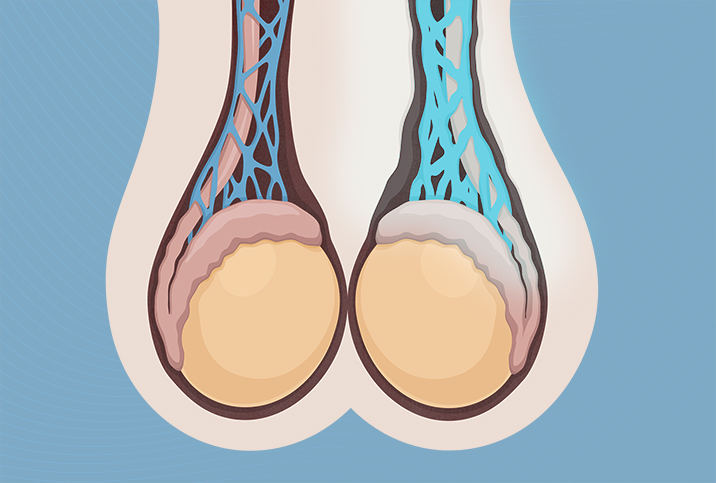The Long-Term Genital Issues of a Faulty Lymph System

Genital lymphedema, or the buildup of fluid that causes swelling in the soft tissue of the genital area, is uncommon in developed nations. When it has presented itself, it has historically been secondary to surgery or radiation in the pelvic region or in tandem with other genital trauma.
For reasons not entirely known, the potentially debilitating condition is much more common in tropical locales, affecting as much as 20 percent of the male population. One theory for this circumstance is related to a parasitic infection that may lead to some symptoms of lymphedema, but the research is not considered definitive.
Regardless, the fluid buildup, swelling and other issues associated with genital lymphedema can lead to serious issues in the scrotum and nearby organs, potentially requiring surgery to treat and relieve the growths. Swelling and pain can occur in the penis, the scrotum or both.
"The edema [swelling] can be so severe that it could bury the penis," said Hanson Zhao, M.D., a reconstructive urology fellow at the Cleveland Clinic.
The fluid buildup, swelling and other issues associated with genital lymphedema can lead to serious issues in the scrotum and nearby organs, potentially requiring surgery to treat and relieve the growths.
This particular lymphedema begins as a sort of dysfunction of the lymph system in the scrotum. Normally, lymph fluid—responsible for delivering immune system cells to the bloodstream and removing bacteria and certain blood proteins—drains out of the scrotum and back into the body. With genital lymphedema, lymph blockages occur for any number of potential reasons, resulting in inflammation and swelling within the scrotum.
"These growths can get up to over 100 pounds and hang down to the ground," Zhao added.
While those extreme cases develop over time, even a minor case of lymphedema can cause serious discomfort and the physical inability to maintain normal urinary and sexual function.
Potential causes of genital lymphedema
There are two types of genital lymphedema: primary and secondary.
The primary type is a result of abnormal lymphatic system development, potentially at birth or due to genetics. The secondary type is much more common and can arise from genital tumor treatment, long-term lymph infections and certain inflammatory diseases such as Crohn's, though this is less common.
Another potential link is obesity, although some urologists are wary of making a direct correlation.
"Patients who have significant issues with obesity and are sedentary are associated with this, but I wouldn't want to link obesity directly," said Uzoma Anele, M.D., a reconstructive urologist with the University of Louisville Health.
Limited treatment options beyond surgery
Men with mild cases who are suffering from the urination pain, infections and general discomfort associated with lymphedema might find some relief from manual lymphatic drainage and special compression bandages that help fluid circulate.
More severe cases, however, will likely require surgery.
"In severe cases, patients may need reconstruction to restore lymphatic drainage or remove excessive skin," said Nima Baradaran, M.D., an Ohio State University assistant professor of urology.
Surgical options range from a simple removal and partial reconstruction to a full reconstruction plus modification of the lymph nodes in the area, in an attempt to help the system begin to recirculate on its own.
Typical severe cases require a hospital stay for a couple of days as the body begins to heal from the reconstruction. Soon after surgery, most men may be able to endure some regular urinary function.
"It's definitely a high-success procedure," Zhao said.
Some see major life improvements
Anele added that the surgical results can be "remarkable" for someone who has been dealing with genital lymphedema for a long time. He said many of his patients are often assisted by a caregiver because of the ongoing lymphedema. Although he prepares patients for the potential of postsurgical issues—wound breakdown and extended healing time are two common ones—he tends to remain optimistic about the postoperative prognosis.
"[Lymphedema] is often a vicious cycle," Anele said. "Especially for those in more sedentary situations, when they can finally find someone who is willing and able to help them, they're pretty motivated by this debilitating condition."


















